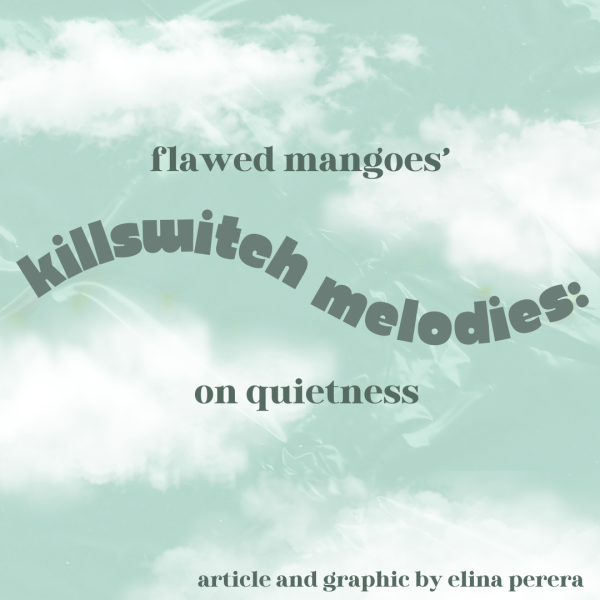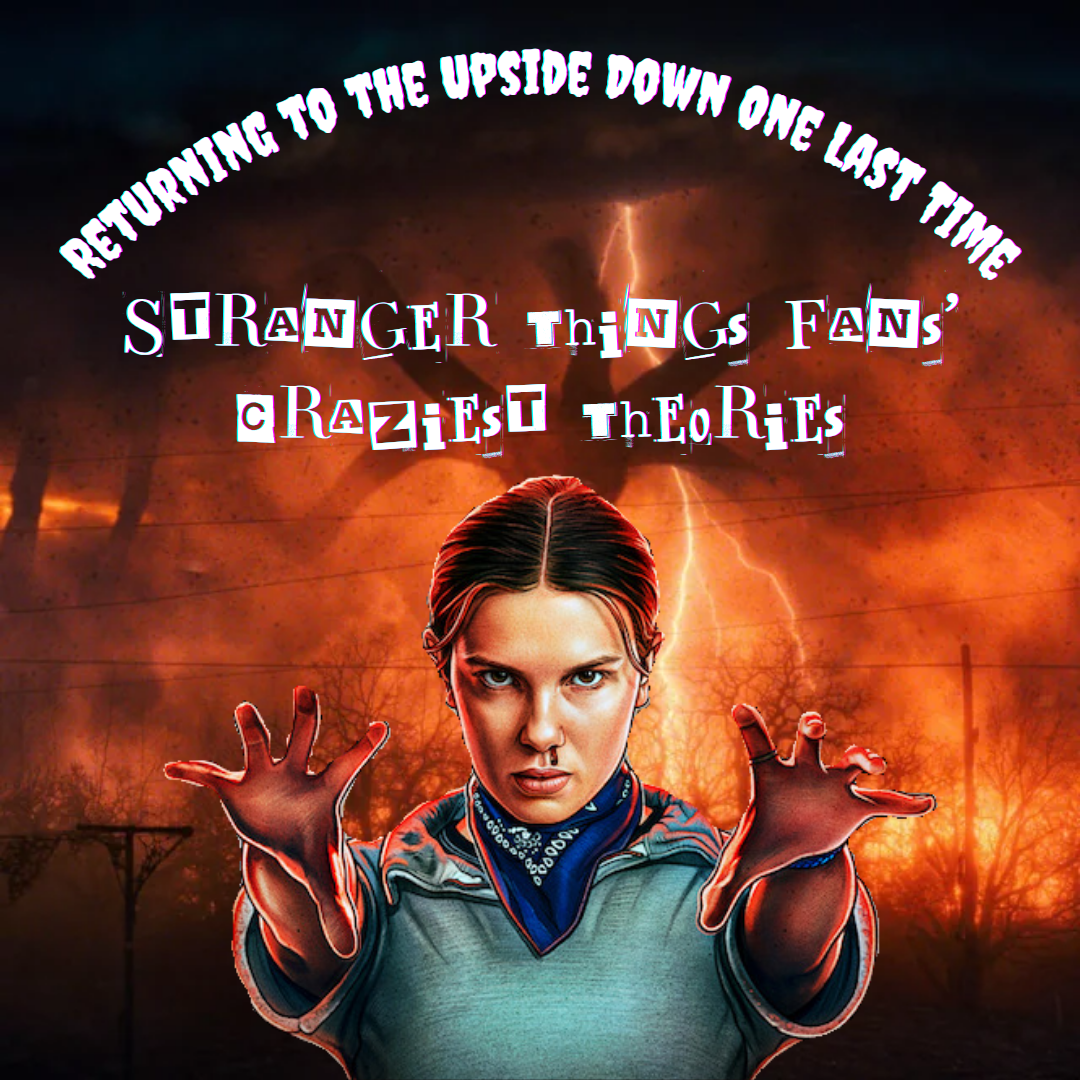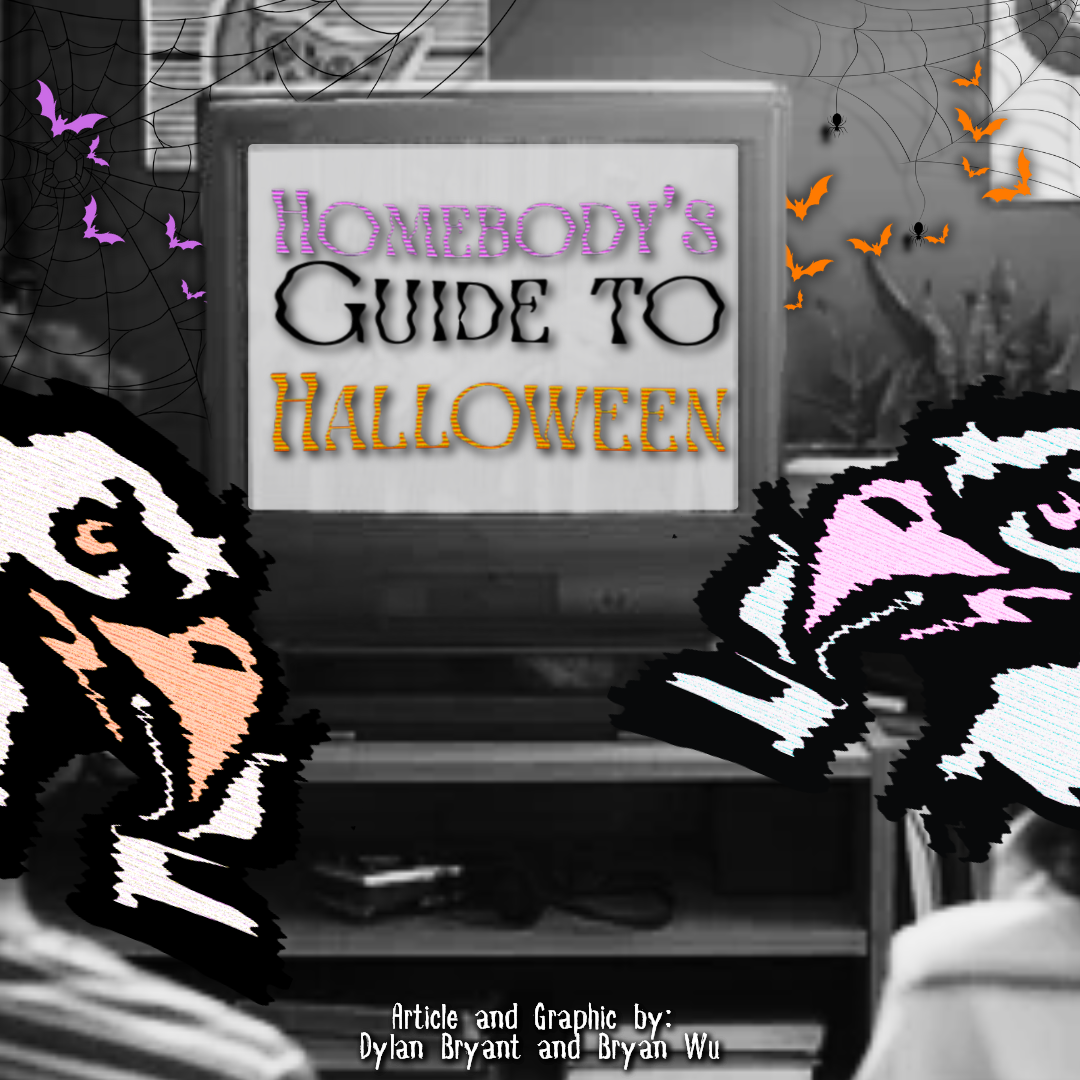Lyrical music invites us to feel what is written. In this sonic sphere, melodies complement words. Instrumental electronic music is much more subtle about its meaning, allowing the listener to draw their own conclusions, guided only by the movement of notes and sound. Evan Lo is flawed mangoes, an NYC-based indietronica producer who released a masterful debut album in December of 2023 entitled Killswitch Melodies.
Killswitch Melodies was born of pure experimentation. In July 2023, Lo debuted his killswitch technique with a TikTok video of him “flickering” between chords. This song garnered 1.3 million views on the platform and would later become Killswitch Lullaby, Lo’s debut instrumental single. After the first video gained so much traction, Lo continued experimenting with the killswitch technique, posting several videos for the next few months, leading up to the album’s release.
Most electric guitars can use a killswitch. The tool cuts off a guitar’s signal to an amplifier. When the switch is turned on and off during a single note, as Lo does, the sound gains a stuttering staccato quality. The killswitch is one of the earliest methods of creating special effects with a guitar. The technique is well-established in the musical world, employed by bands like Van Halen, Radiohead, and Rage Against The Machine. These artists use killswitches to form sonic environments that emphasize the experience of listening, inviting listeners into a new world formed entirely of sound. In Killswitch Melodies, Evan Lo uses killswitch technology to create a vulnerable hesitation, with the steady movement of the killswitch acting as gentle percussion.
This album is a tentative departure from Lo’s characteristic sound, forgoing high production and distorted vocals for the earnest simplicity of instrumental guitar. Killswitch Melodies isn’t so unfamiliar as to be wholly unrecognizable, though. The hallmarks of Lo’s work, like bright synthesizers and swooping phrases, remain evident in this newest project. Killswitch Melodies is characterized by echoing melodies and light tones, keeping tracks short and sweet, with song length at an average of about 2 minutes and 30 seconds.
Lo’s precise understanding of melody and feeling means that no phrase begins too early or ends too late. The music flows effortlessly from piece to piece, carrying a thematic emotion throughout. For Scattered (Instrumental), track 11 on the album, plaintive yearning strings give way effortlessly to a forceful drive of bass and drum, lifting the listener onward on a tide of feeling. The Beginning, track 1, lacks percussion entirely. Its glittery tone and robotic synths remind the listener of a beautiful journey, wonderful and strange.
Evoking strong emotions without lyrics as guidance can pose a challenge. Killswitch Melodies, however, is made no less relatable by its careful silences. Rather, the intent is made clearer by the specific elements that Lo chooses to impart to us. It is precisely the clarity of tracks like Event Horizon that evokes feelings of untethered breathlessness. The listener is bombarded by distant beeps, like unfamiliar communications from a distant galaxy. In every sense, the track is dedicated to the evolving interconnectedness of our world. We move forward unstoppably, beyond the point of no return from which the track derives its name.
Instrumental music is uniquely powerful to move us as listeners because we have no instruction. Following patterns of melody, we place our full attention on the music and our response. The absence of words invites self-reflection, and concentration on exactly what we feel, rather than processing the lyrics we hear.
It’s a delicate psychology. Since the musician’s intent is so shrouded in sound, the ability to deliver a feeling is equally impressive as with lyrical music, albeit for different reasons.
Our moods rise and fall with notes. There are plenty of explanations for this. We’re socialized to believe that songs in minor keys are sadder: songs like Chopin’s Funeral March and The Animals’ House of the Rising Sun are examples. But major = happy and minor = sad is an oversimplification. Songs in minor keys are well and truly capable of being happy, and songs in major keys can be sad (take Oasis’ Wonderwall, in F# minor, or Taylor Swift’s All Too Well, in C Major.) Ultimately, we take most of our cues from volume and tempo. Faster, louder songs prompt more energetic emotions. Slower, quieter songs subdue music and our feelings.
Oftentimes, listeners don’t understand the theory of what they’re listening to. Thus, artists are presented with a choice: show or tell us what to feel. Through Killswitch Melodies, Evan Lo chooses the former. He balances quietness, speed, and a masterful knowledge of musical theory. Within Killswitch Melodies, new technologies and old understandings merge to create an ode to the listening process itself.
NPR – Why We’re Happy Being Sad: Pop’s Emotional Evolution
Ai Kawakami, Kiyoshi Furukawa, and Kazuo Okanoya – THE PLEASANT EMOTION OF SAD MUSIC
Ai Kawakami, Kiyoshi Furukawa, and Kazuo Okanoya – Music evokes vicarious emotions in listeners








